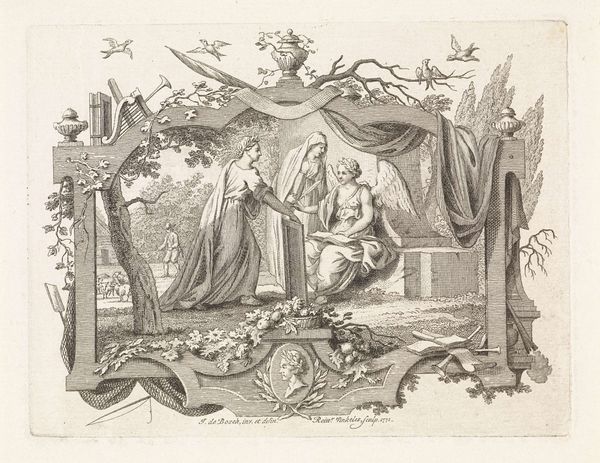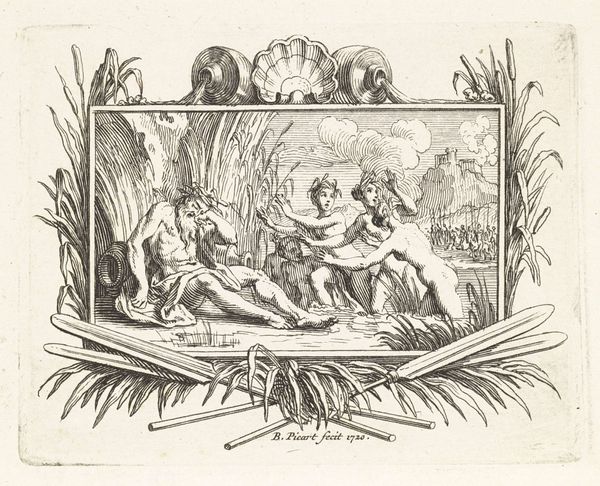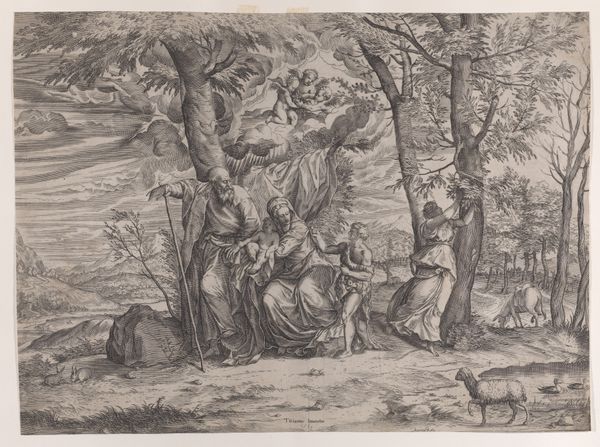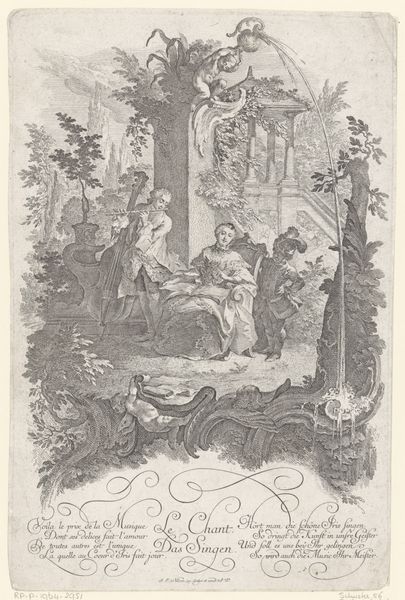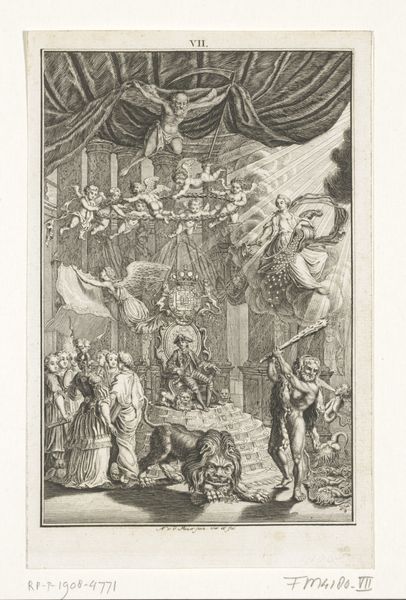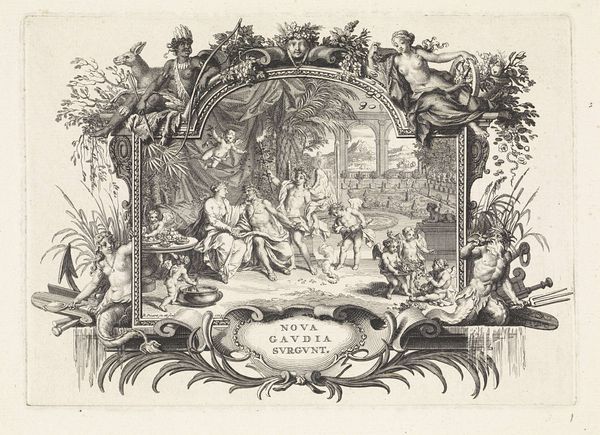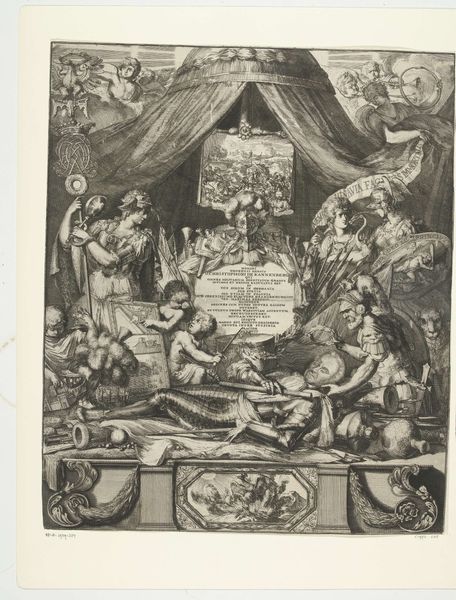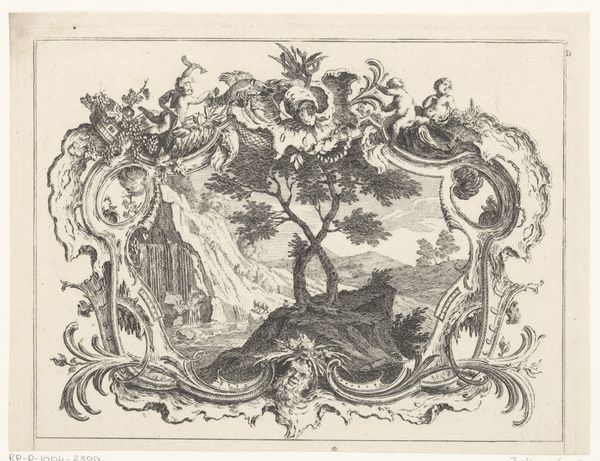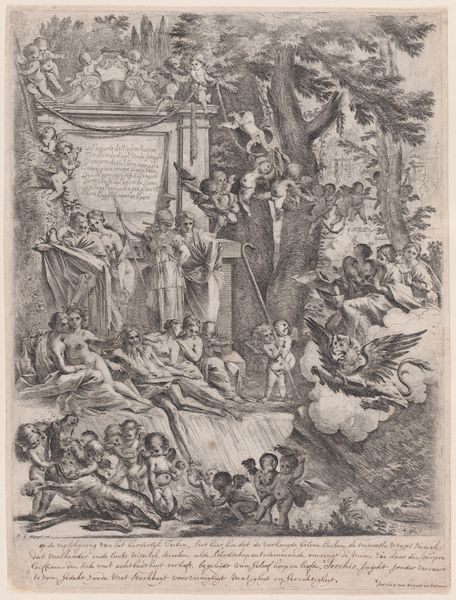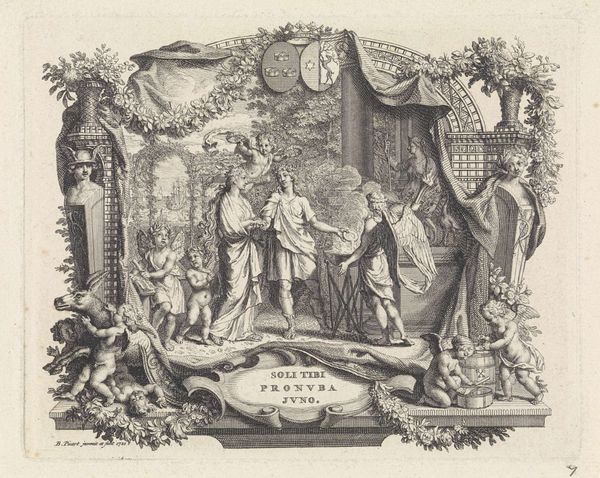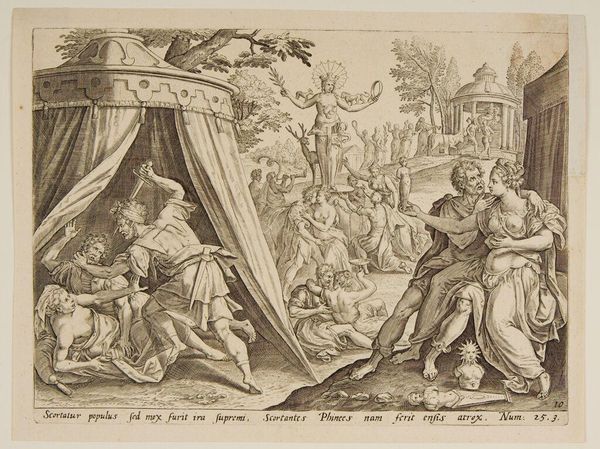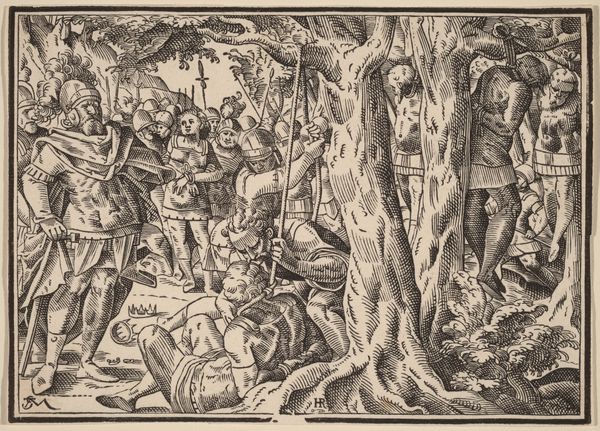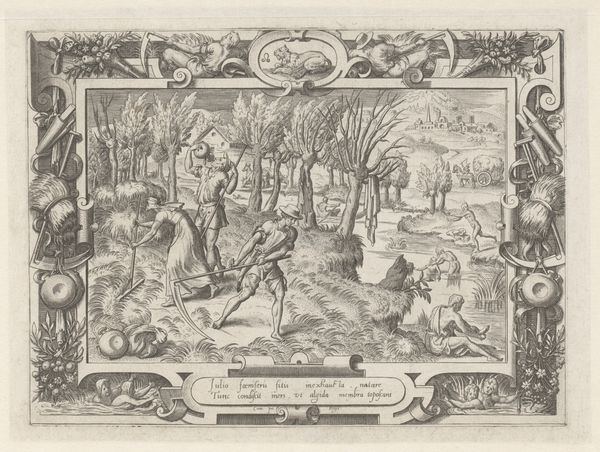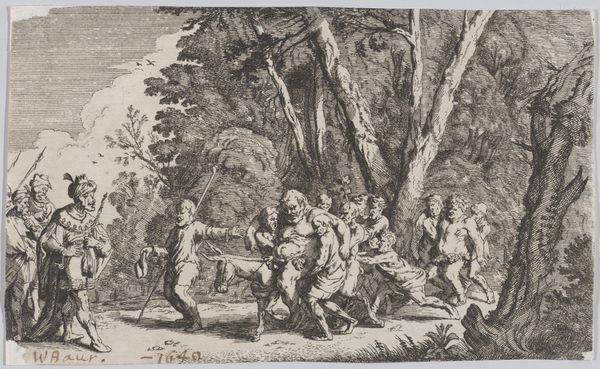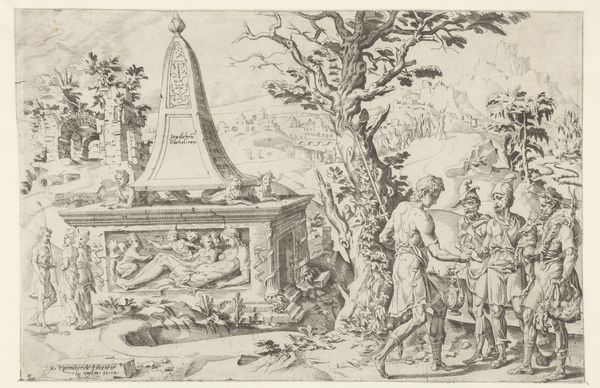
drawing, print, ink, engraving
#
drawing
#
neoclacissism
#
ink drawing
#
narrative-art
#
pen drawing
# print
#
pen illustration
#
pen sketch
#
landscape
#
figuration
#
ink
#
line
#
history-painting
#
engraving
Copyright: National Gallery of Art: CC0 1.0
Editor: This is "The Tournament of Love" by Antoine Carrée, from 1782. It's an ink and engraving print. It feels like a chaotic celebration, but there's something oddly formal about the composition too. What do you see in this piece beyond the initial impression? Curator: It's fascinating, isn't it? Beyond the seemingly whimsical tournament, consider the sociopolitical climate of 1782. Neoclassicism was in vogue, drawing from ancient ideals of order and reason. But Carrée subverts that, perhaps intentionally. Note the asymmetry, the borderline-grotesque figures, the implied critique of aristocratic pastimes detached from real-world concerns. Does this challenge the perceived 'glory' and 'virtue' associated with such spectacles? Editor: So, you're saying the artist is making a statement about class? About the disconnect between the elites and the lives of everyday people at the time? Curator: Precisely. It’s also interesting to think of this work as a commentary on masculinity. What ideals of manhood were being performed in these tournaments, and for whom? The "tournament of love" might, in fact, be an ironic comment on power structures masquerading as courtship rituals. Editor: I never thought about it that way! I just saw it as a scene. Curator: And that’s a valid first impression! But art, especially from this era, is rarely just a scene. What kind of conversations could this provoke on the objectification of love? Editor: I see what you mean. It’s almost like Carrée is questioning the whole idea of love being a battlefield reserved to a select few. I'm walking away with a lot to think about. Curator: As am I. Let us remind ourselves of the power of art as a means to deconstruct prevalent socio-historical paradigms.
Comments
No comments
Be the first to comment and join the conversation on the ultimate creative platform.
